Vinyl gutters have gained some popularity in recent years due to their affordability and ease of installation. However, before you jump on the vinyl gutter bandwagon, it’s essential to consider the potential downsides. Let’s explore seven reasons you might want to avoid vinyl gutters at all costs. We highlight some drawbacks that could save you money, time, and headaches.
1. Durability Issues
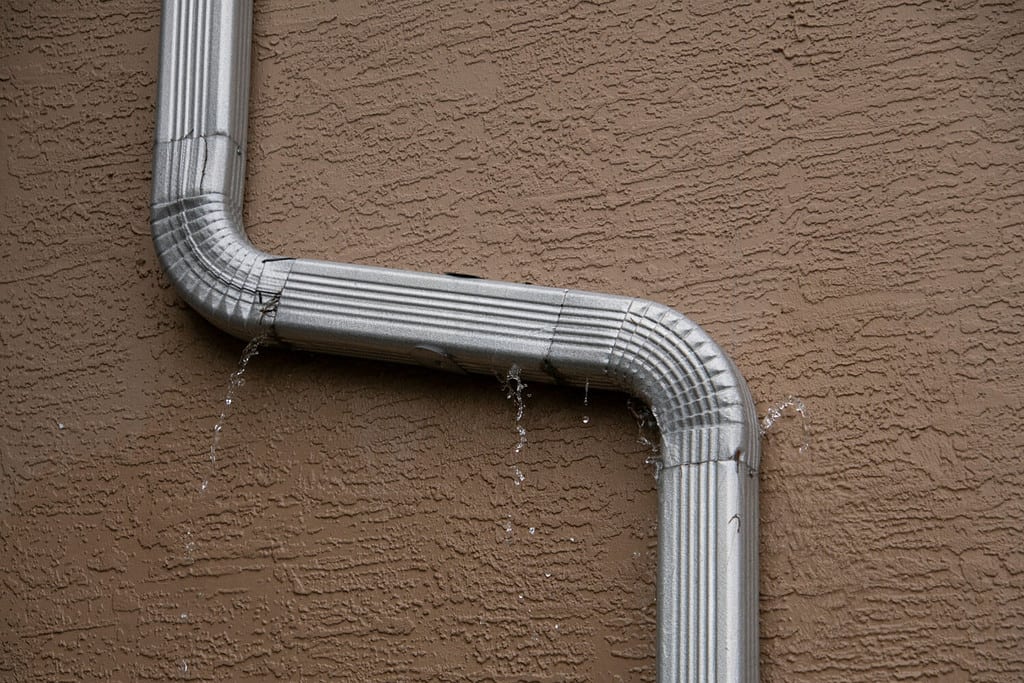
While all gutters can face issues, vinyl gutters are known to be less durable.
©Carolyn Hutchins/Shutterstock.com
When it comes to durability, vinyl gutters leave much to be desired. These gutters may appear to be a cost-effective solution initially, but over time, they can reveal their weaknesses, often leading to frustrating and costly problems.
Vinyl gutters are particularly vulnerable to cracking and warping due to their composition. They are made from polyvinyl chloride (PVC), a type of plastic that may not hold up well under extreme weather conditions. This can become an absolute nightmare for homeowners in regions with fluctuating temperatures.
In colder climates, vinyl gutters can become exceedingly brittle. The material loses its flexibility, which makes it susceptible to cracks when exposed to freezing temperatures. Even a minor impact, such as a falling tree branch or a wayward baseball, can cause significant damage, leaving you with a leaking gutter system. These cracks not only impede the proper flow of rainwater but also compromise the structural integrity of your home.
Conversely, vinyl gutters are prone to warping during scorching summer heatwaves. The plastic can distort and deform, leading to irregularities in the gutter shape. This warping can disrupt the smooth flow of rainwater, causing it to pool in certain areas and potentially overflow, leading to water damage or basement flooding.
Furthermore, vinyl gutters can become brittle and easily damaged by hail, a common weather occurrence in many areas. These temperature-related issues can result in costly repairs and replacements, making vinyl gutters less than ideal for homeowners seeking long-term durability.
2. Limited Color Options

New homeowners like to have plenty of options, which vinyl can limit.
©Joel Kaiman, TJM Communications – Original
While affordability may make vinyl gutters an enticing choice, you’ll quickly notice the limitations when personalizing your home’s exterior. Vinyl gutters offer a limited range of color options, which can be a significant drawback for homeowners who wish to match their gutters with the overall look of their house.
In contrast to vinyl, gutter materials like aluminum provide a broader palette of colors, allowing homeowners to select gutters that seamlessly blend with their home’s facade or trim. The limited color choices of vinyl gutters can be frustrating for those with a keen eye for aesthetics.
When you opt for vinyl gutters, you might have to compromise your vision for your home’s exterior. This may be incredibly frustrating if you’re planning to invest in a fresh coat of paint or siding only to discover that there needs to be a suitable gutter color to complement your design. The result can be a need for harmony and cohesion in the overall look of your property.
Additionally, vinyl gutters are more susceptible to discoloration, fading, and staining over time, which can further detract from the aesthetic appeal of your home. While regular maintenance and cleaning can help mitigate these issues to some extent, the need for ongoing upkeep adds another layer of inconvenience.
3. Reduced Aesthetic Appeal
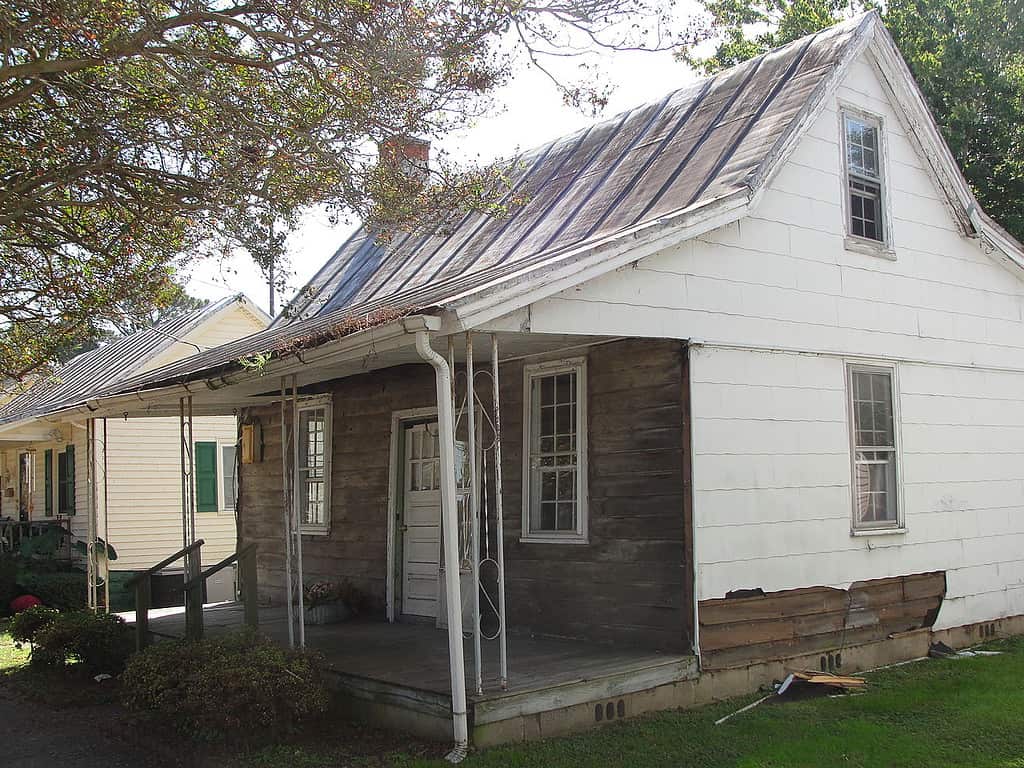
Vinyl gutters can discolor and develop hideous stains.
In addition to limited color choices, vinyl gutters may not provide the same aesthetic appeal as other gutter materials. Over time, they can discolor, fade, or develop unsightly stains, diminishing the overall look of your home. If you value the visual aspect of your property, there may be better choices than vinyl gutters for you.
4. Prone to Clogs
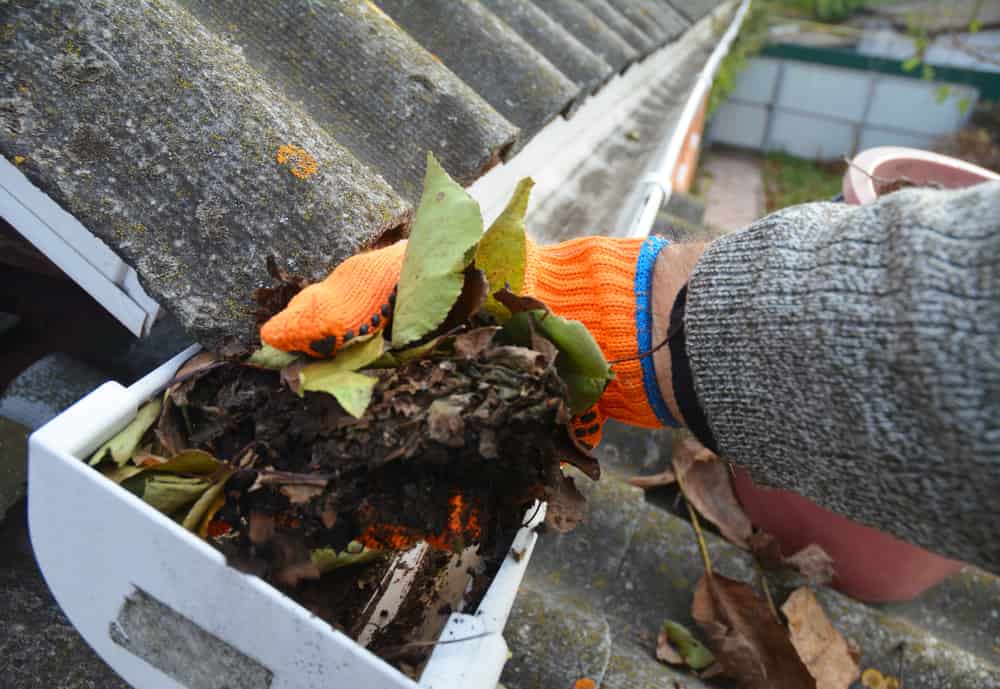
These types of gutters clog easily.
©Radovan1/Shutterstock.com
Vinyl gutters are more susceptible to clogging than their metal counterparts. Their seams collect debris, such as leaves, twigs, and dirt, quickly blocking water flow. Maintaining vinyl gutters can become a tedious and frequent chore, as regular cleaning and upkeep are necessary to prevent issues like water overflow or damage to your home’s foundation.
5. Limited Lifespan
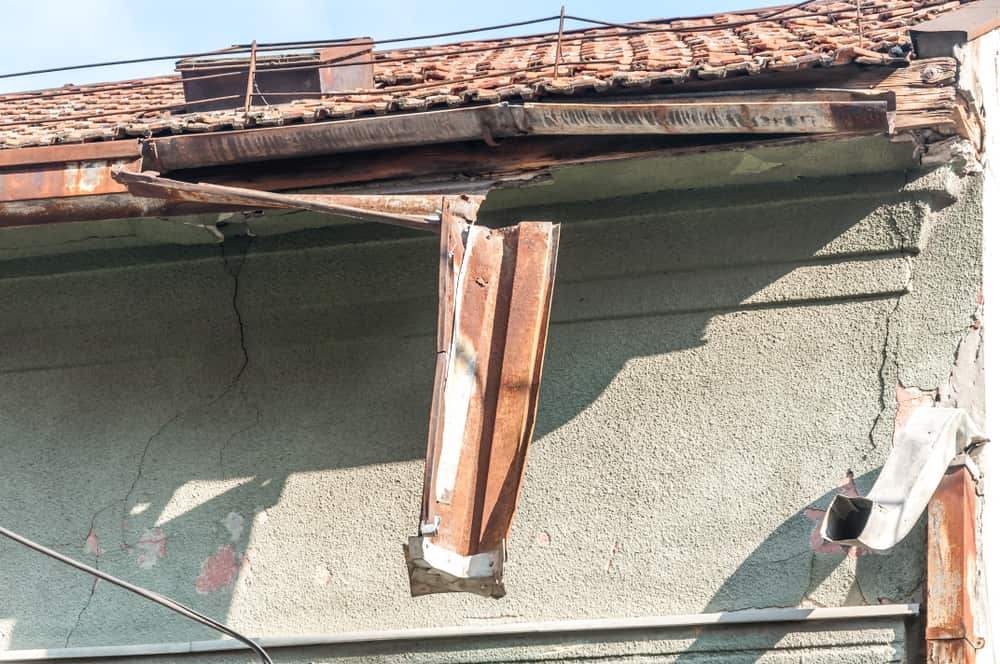
Other materials will last longer than vinyl.
©Srdjan Randjelovic/Shutterstock.com
When compared to materials like aluminum or copper, vinyl gutters have a significantly shorter lifespan. You may need to replace them more often, incurring additional costs and time-consuming installation processes. Investing in a more durable gutter system can save you money in the long run and reduce the hassle of constant repairs or replacements.
6. Temperature Sensitivity
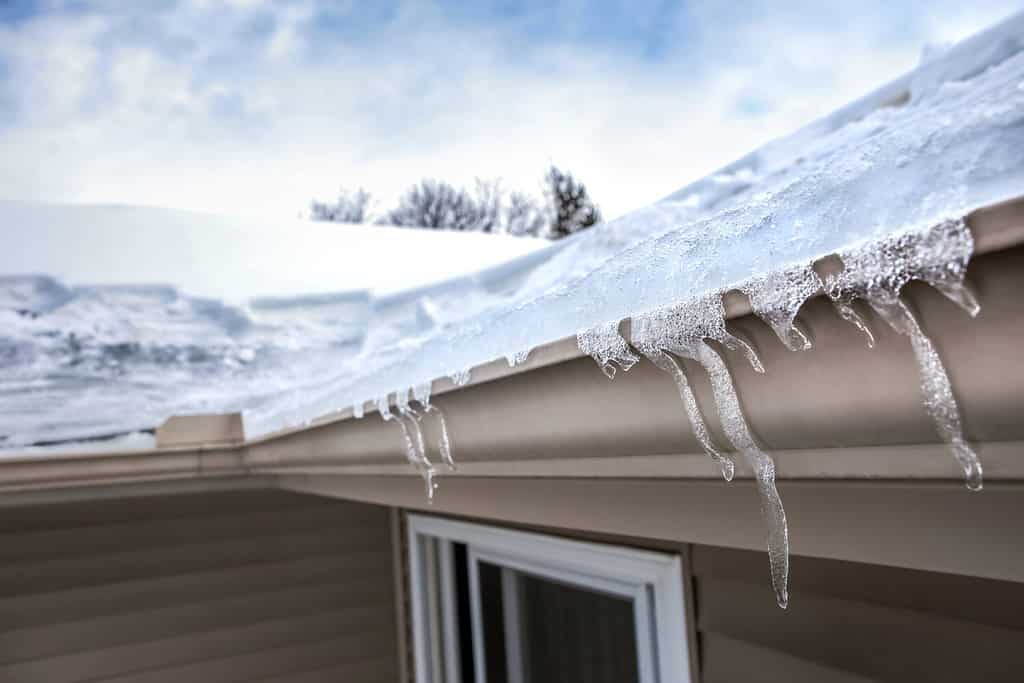
Ice dams can be a common gutter problem for homes in colder regions.
©Suzanne Tucker/Shutterstock.com
Vinyl gutters are sensitive to temperature fluctuations. In freezing weather, they can become brittle and prone to cracking, while in scorching heat, they may warp or deform. These temperature-related issues can lead to leaks and water damage, causing potential problems for your home’s structure and foundation.
7. Environmental Concerns

The harmful chemicals used in this gutter material are a major turn-off for homeowners.
©Rattiya Thongdumhyu/Shutterstock.com
Vinyl gutters are not an environmentally friendly choice. They are made from PVC (polyvinyl chloride), which can release harmful toxins when manufactured and disposed of. Choosing more sustainable materials like aluminum or copper can be a more responsible choice for those concerned about their ecological footprint.
While vinyl gutters may seem like an affordable and easy-to-install option for your home, it’s essential to consider the potential downsides before deciding. From durability issues to limited aesthetic appeal and environmental concerns, there are several reasons to think twice about using these gutters. By choosing a more robust and long-lasting material like aluminum or steel, you can save yourself from the headache of frequent replacements, repairs, and maintenance. In the end, the investment in quality gutters is an investment in the future of your home.
The photo featured at the top of this post is © Victor Yarmolyuk/Shutterstock.com
Thank you for reading! Have some feedback for us? Contact the AZ Animals editorial team.







